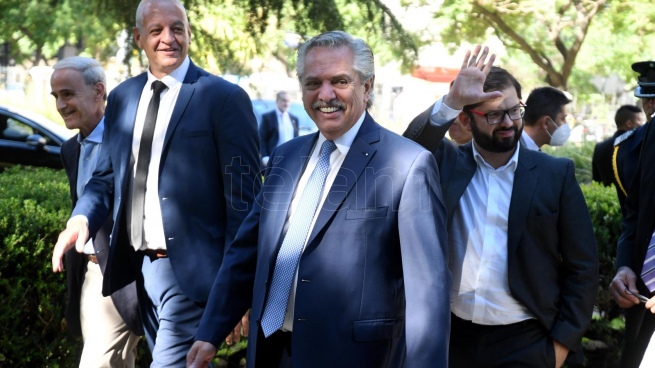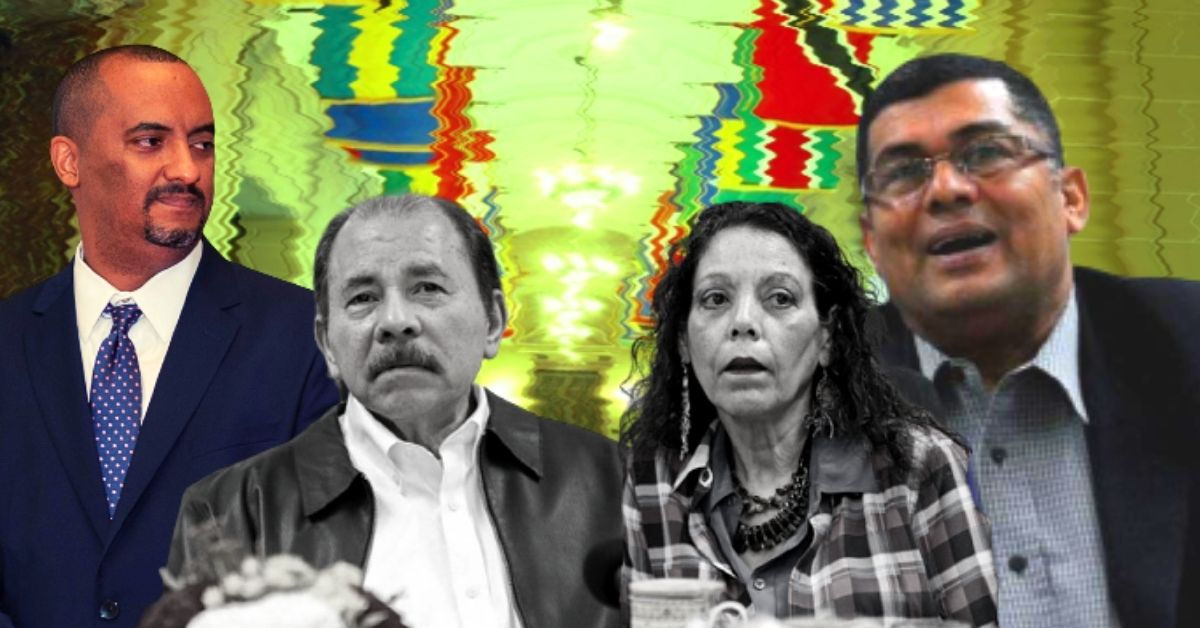The national government’s foreign policy agenda this week had a strong Latin American imprint with the state visits to Buenos Aires by the presidents, from Chile, Gabriel Boric, and from Bolivia, Luis Arce, which implied the deepening of bilateral relations, from the signing of various agreements and the common call to reaffirm regional “unity” to “face” the crisis due to the pandemic and the war in Ukraine.
The Russian invasion of Ukraine was another highlight of the country’s foreign policy of the week that is culminating in the positive vote of Argentina in the UN General Assembly that approved the suspension of Russia from the Human Rights Council of the multilateral organization, promoted by the United States and European powers.
In what was his first trip abroad, after assuming the Presidency of Chile at the beginning of March, the three-day state visit that Boric completed in Buenos Aires marked the beginning of a new stage in the relationship between the two nations, after the departure of the conservative Sebastián Piñera from La Moneda.
Beyond the agreements signed in various areas together with President Alberto Fernández, Boric’s stay in the country was marked by a strong symbolic content about the historical cultural ties that unite the two nations and the positions shared by both administrations in terms of human rights, gender and diversity, in addition to the firm conviction that the two countries assume a “common destiny” from Latin America.
Fernández and Boric toured the ESMA Memory Site Museum together, where they met with representatives of human rights organizations and with survivors of the main clandestine detention center of the last civic-military dictatorship and an emotional concert at the Kirchner Cultural Center (CCK) in which Chilean and Argentine artists participated.
The governments of Argentina and Chile have a common agenda that also includes the promotion and care of the environment, and the importance of investment in science and technology and innovation to promote regional development.
The leaders issued a joint statement in which they stressed that the bilateral relationship “constitutes a State policy supported by the commitment to deepen the path of political dialogue” and by “the firm decision to resolve any difference within the framework of legal mechanisms international”.
“Chile and Argentina do not have a mountain range that divides them, but rather unites them, and we must attend to that once and for all,” Fernandez emphasized during a press conference offered by both leaders at the Government House Bicentennial Museum.
Boric had begun his speech underlining the interest in “deepening the relationship” with the “brother people” of Argentina in a construction that, he exhorted, “has to go beyond the preferences of the presidents.”
While Fernández emphasized the “many points of contact” and “look” to face the reality that unite him with Boric, his Chilean counterpart asked to concentrate on the “points in common” and move away from the “differences” that “make one think ” that one is “before an abyss”.
The news of the region was also in the speeches with topics ranging from the claim of Argentine sovereignty in the South Atlantic to the Mapuche problem in Patagonia and the Human Rights agenda.
On that level, Fernández seemed to allude to the serious political crisis that Pedro Castillo’s Peru is going through and remarked that Latin America “is a zone of peace, a zone that values peace and that every day makes efforts so that democracy and institutionality preserved and deepened”.
Boric, who embodies a new perspective on the insertion of his country in the global reality, stressed that “Chile starts from Latin America” to link with the world.
The state visit was crowned with the signing of numerous agreements and memorandums with the aim of strengthening the strategic relationship and cooperation between the two countries in terms of industrial and technological development and regional economies. There were also agreements in the areas of cultural promotion, gender, human rights and environmental protection, and inclusion and promotion of the diversity of cultural expressions.
Two days after Boric’s departure, on Thursday, Bolivian President Luis Arce, another important regional ally of Alberto Fernández, arrived in the country.
Although the main objective of Arce’s state visit was to unlock -as it finally happened- an agreement on the volumes and price of the natural gas that Bolivia will send to Argentina to face the peak of local demand in the winter months, it also acquired a strong political imprint.
In a joint press conference at Casa Rosada, Fernández and Arce renewed their call for Latin American “unity” to “face” the economic and social consequences of the Covid-19 pandemic and the war in the “most unequal continent in the world”. in Ukraine, and exhorted the countries of the region to pronounce themselves emphatically in favor of “preserving the institutionality” in Peru, as a result of the serious political crisis that nation is going through.
“We have a Latin America that has seen its unity affected in the four years in which the North American government led by Donald Trump did everything necessary to divide us. It is time to leave that time and that we can work towards the unity of our continent. who needs it and a lot,” Fernández called.
Both leaders ratified the intention to deepen the bonds of “brotherhood” between the two nations and expressed their “concern” about the unstable situation that the government of Pedro Castillo is going through, which is undergoing a new “attempt” to “remove” by sectors of the the Peruvian “right”, they denounced.
Earlier, the heads of state had met alone in the presidential office, where they advanced on different points of the bilateral relationship, including a memorandum for cooperation in the development of lithium resources.
“Our continent is a continent that suffers from inequality and that needs to quickly improve conditions of equality for those who inhabit it,” Fernández analyzed during the press conference and reinforced the idea of ”rebuilding Latin American unity as it once existed with countries and governments of different political color”, although he admitted that moving forward “is easier” between governments with “similar opinions”.
“We must once again rebuild that unity that Latin America needs in the face of the complex processes that lie ahead. A pandemic has not been overcome and a war has caught the world again,” he postulated.
In his turn, Arce ratified Bolivia’s intention to “continue advancing and building our great homeland.”
Arce linked this concept to the commitment he made to Fernández to respect the current contract regarding the supply of gas, which will allow him to receive 14 million cubic meters per day during the winter, as in 2021, and to guarantee that Argentina will have purchasing priority. for any additional increase in production in Bolivian deposits.













